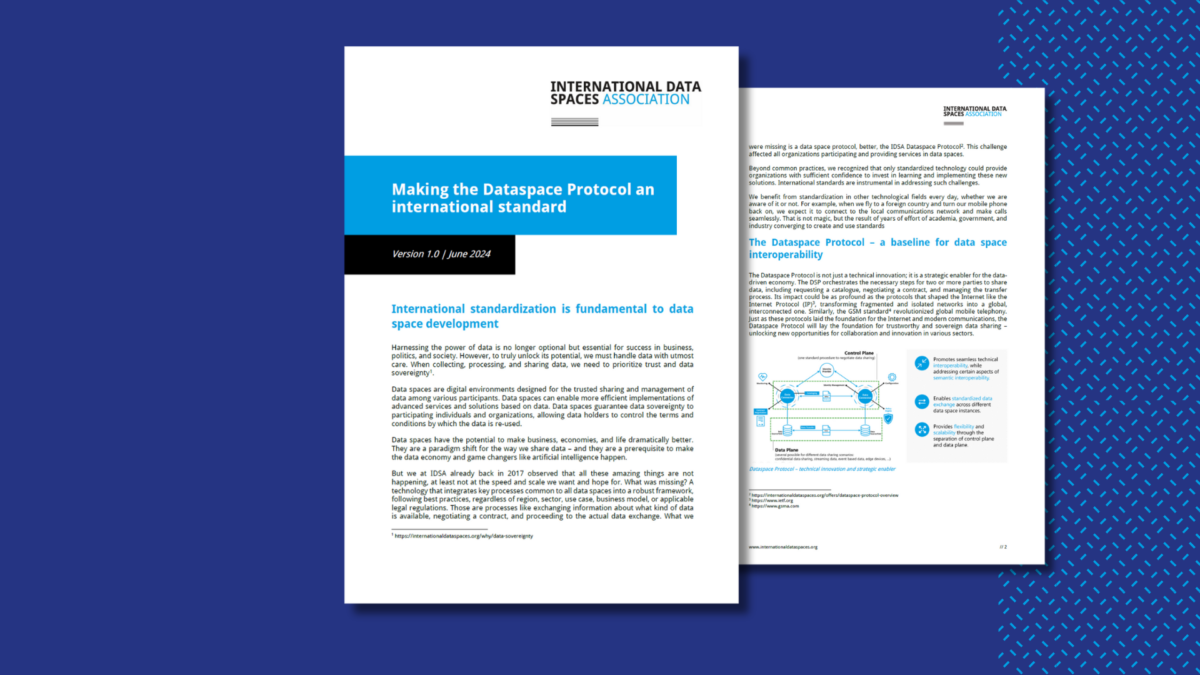The International Data Spaces Association (IDSA) has published an information piece detailing the development of the IDSA Dataspace Protocol, a significant step towards standardizing data space interoperability. This document highlights the need for trust and data sovereignty in data sharing.
This publication is a milestone in the journey towards a data-driven future, where data sharing is based on trust and data sovereignty. The IDSA’s commitment to international standardization sets the stage for a new era of data utilization and innovation.
Lars Nagel, CEO of IDSA
Download the paper here: Standardizing the Dataspace Protocol – International Data Spaces
Key takeaways
- Data spaces: Digital environments designed for trusted data sharing and utilization, enabling efficient implementation of advanced services and solutions.
- Dataspace Protocol (DSP): A standardized framework developed by IDSA to integrate key processes common to all data spaces, ensuring interoperability and trust.
- International standards: The paper underscores the critical role of international standards in providing organizations with the confidence to invest in new data space technologies.
- European Union’s Data Act: Set to enter into force in September 2025, this legislation will raise global standards for data flow and sovereignty.
- Standardization path of the Dataspace Protocol: The paper provides detailed steps of the standardization process and a status update
Strategic impact of the Dataspace Protocol
The Dataspace Protocol is poised to revolutionize data sharing, much like the Internet Protocol (IP) and GSM standards did for the internet and mobile communications. The IDSA’s efforts in standardizing this protocol aim to unlock new opportunities for collaboration and innovation across various sectors.
Next steps
The document details the standardization path for the Dataspace Protocol, moving through development by the IDSA Working Group Architecture, handling by the Eclipse Dataspace Working Group, and final standardization by the ISO/IEC Joint Technical Committee 1.








